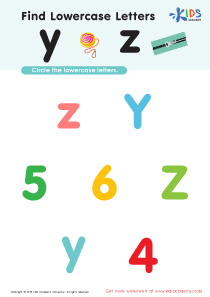Fine Motor Skills Normal Uppercase Letters Worksheets for 4-Year-Olds
7 filtered results
-
From - To
Enhance your child's fine motor skills with our engaging Uppercase Letters Worksheets designed specifically for 4-year-olds! These printable activities focus on helping young learners develop hand-eye coordination and gripping techniques while mastering their uppercase letters. Each worksheet features fun, age-appropriate exercises that encourage children to trace, color, and write letters, fostering both creativity and letter recognition. By practicing these fundamental skills, your little one will gain confidence in their writing abilities and prepare for future learning milestones. Explore our collection today and watch your child's fine motor skills flourish alongside their love for letters! Perfect for home or classroom use!
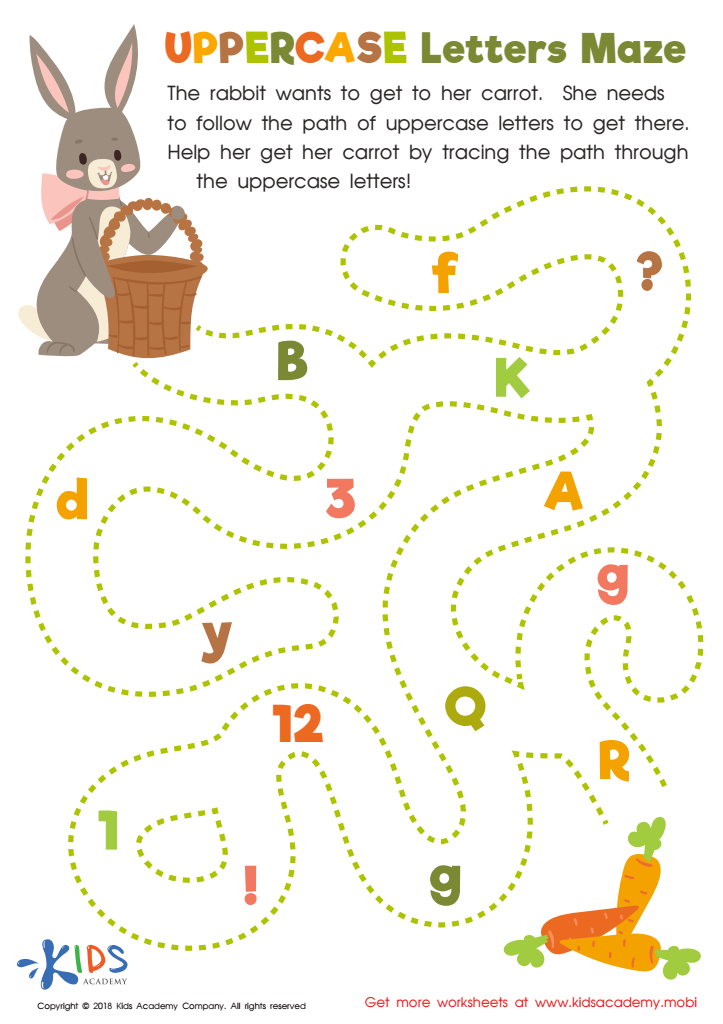

Uppercase Letters Maze Worksheet
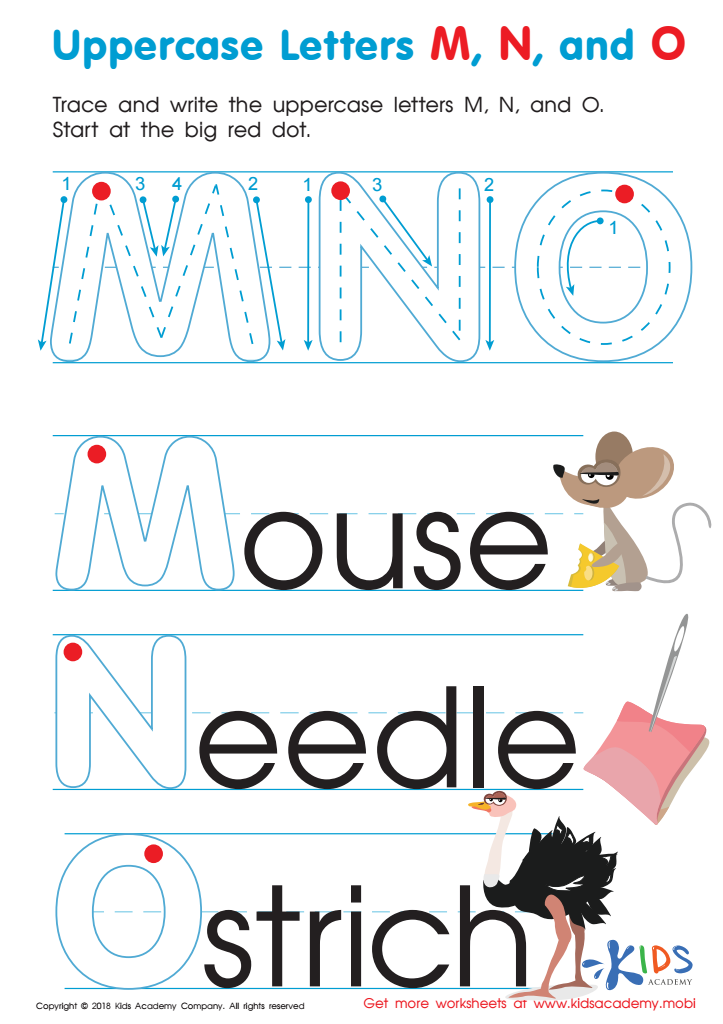

Uppercase Letters M, N, and O Worksheet
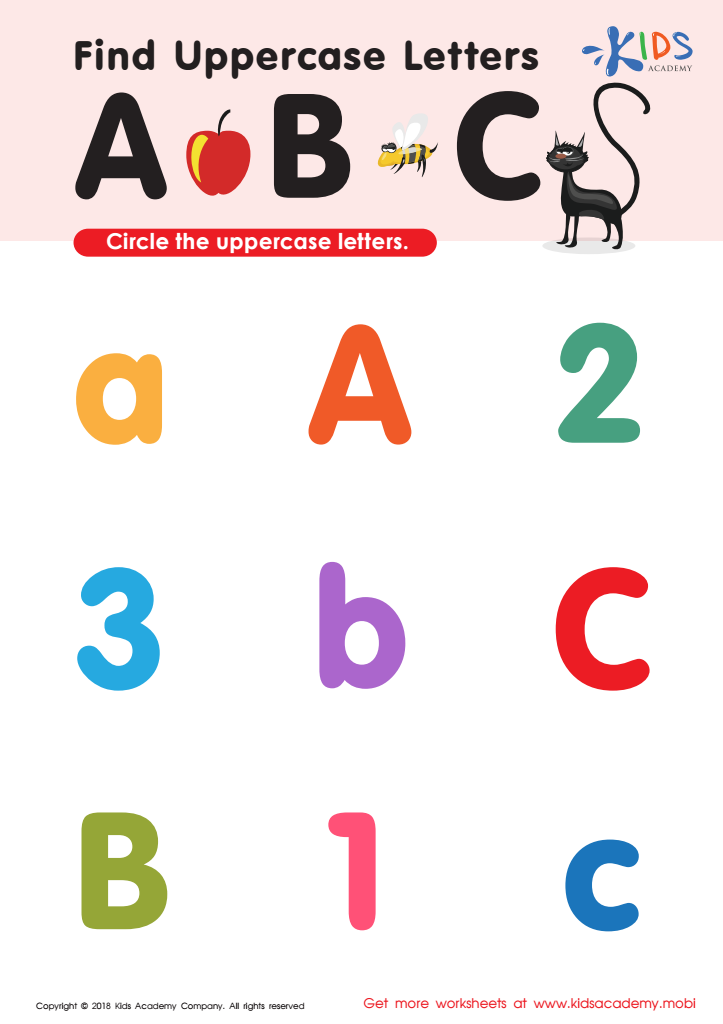

Find Uppercase Letters A, B, and C Worksheet
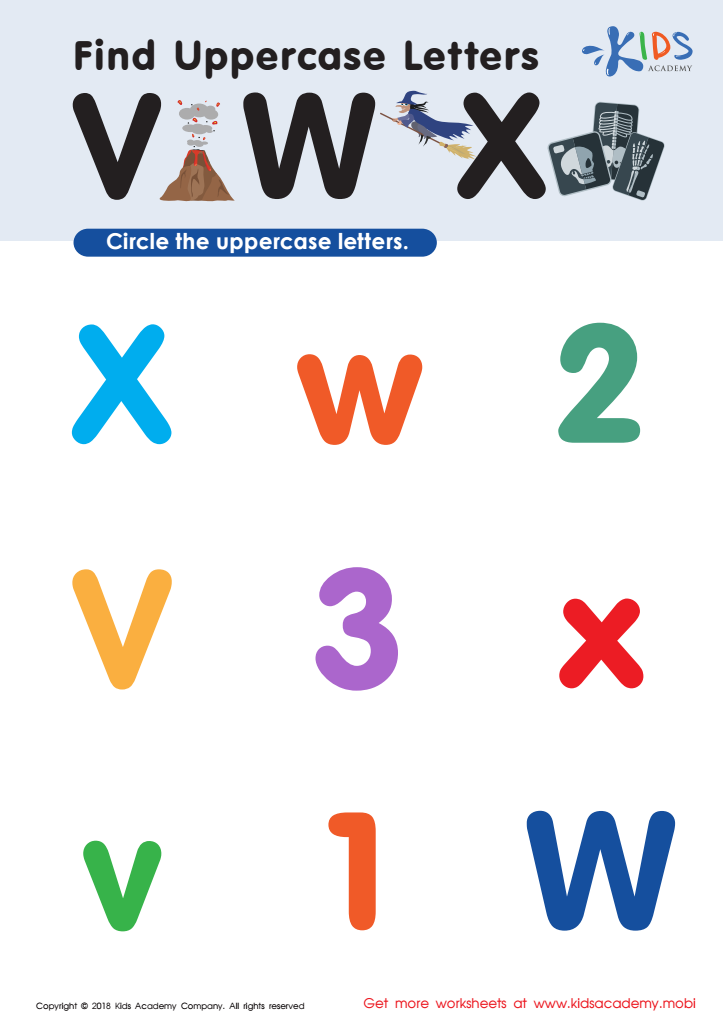

Find Uppercase Letters V, W, X Worksheet
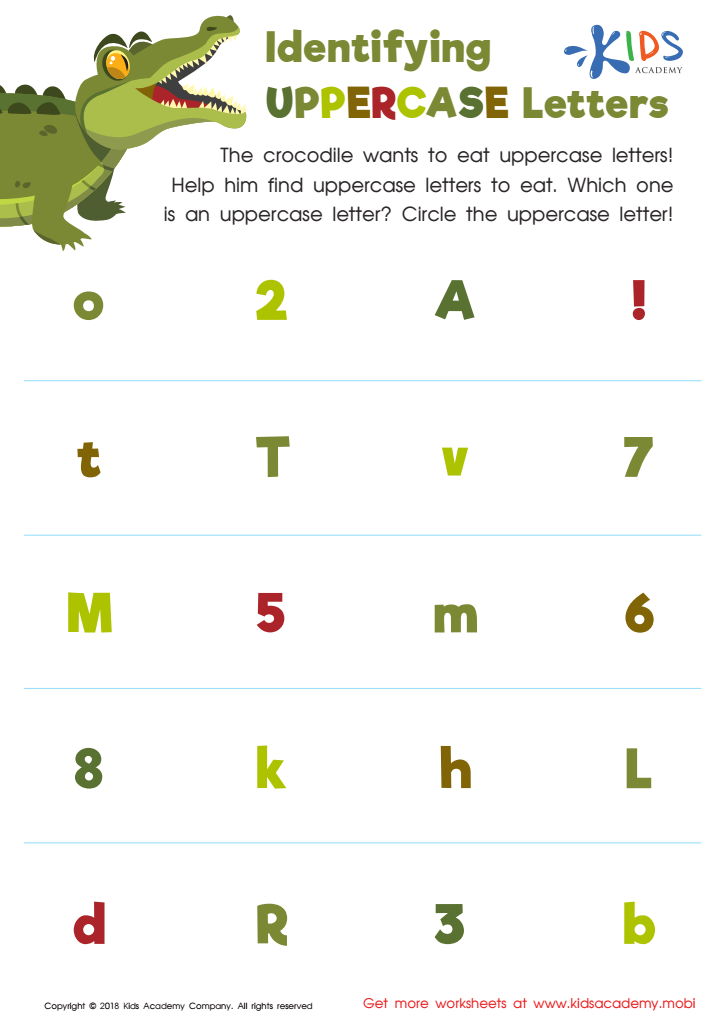

Identifying Uppercase Letters Worksheet
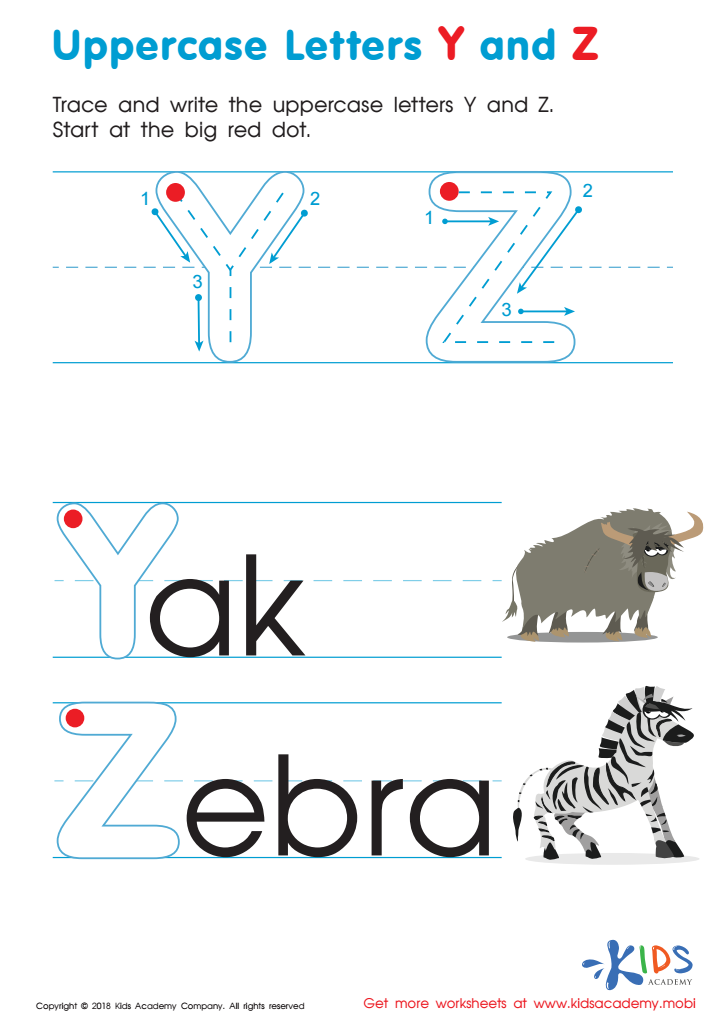

Uppercase Letters Y Z Worksheet
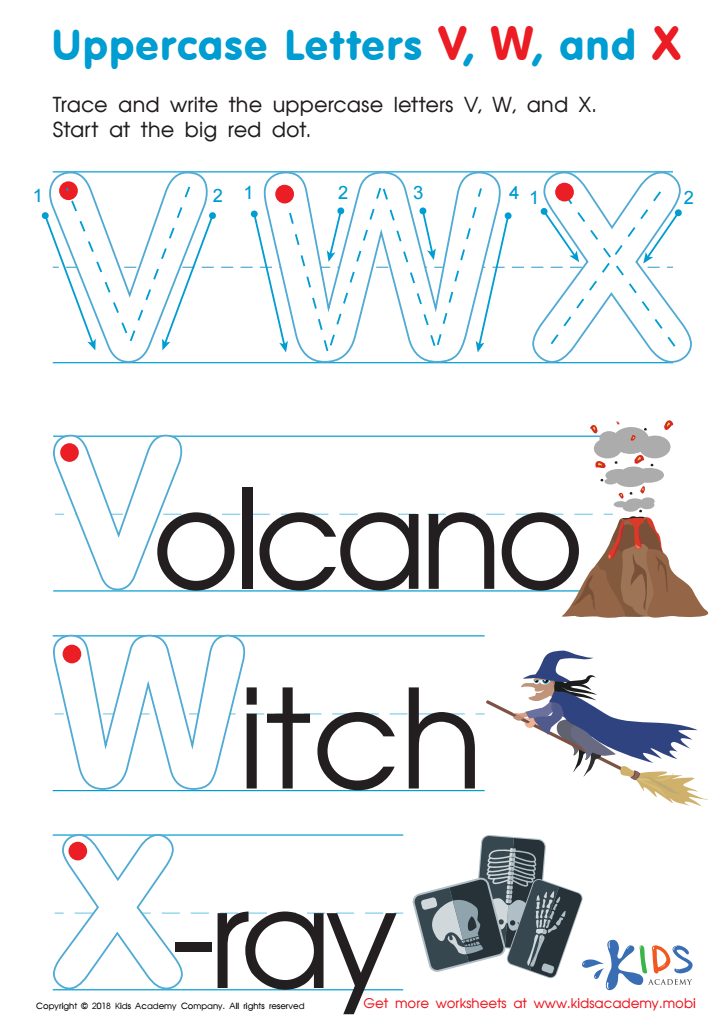

Uppercase Letters V, W, and X Worksheet
Fine motor skills are the small movements that require using the hands and fingers with precision and coordination. For 4-year-olds, mastering fine motor skills, especially when writing normal uppercase letters, is crucial for several reasons.
Firstly, these skills are foundational for later academic success. Writing uppercase letters helps young children develop hand-eye coordination and strengthen the muscles in their hands, which in turn supports writing, drawing, and other critical tasks as they progress through school. It enhances their independence and confidence when they are able to express themselves through writing.
Secondly, engaging with letters and writing activities encourages cognitive development. As children practice, they improve their understanding of letter formation, which is essential for literacy. Recognizing and writing uppercase letters lays the groundwork for learning different fonts and later transitioning to lowercase writing.
Finally, fostering fine motor skills through writing activities promotes creativity and self-expression. When children feel capable of representing their thoughts and ideas in written form, it encourages them to communicate more effectively. Teachers and parents who prioritize fine motor skill development are investing in their child's overall development, paving the way for future learning and personal growth.

 Assign to My Students
Assign to My Students













